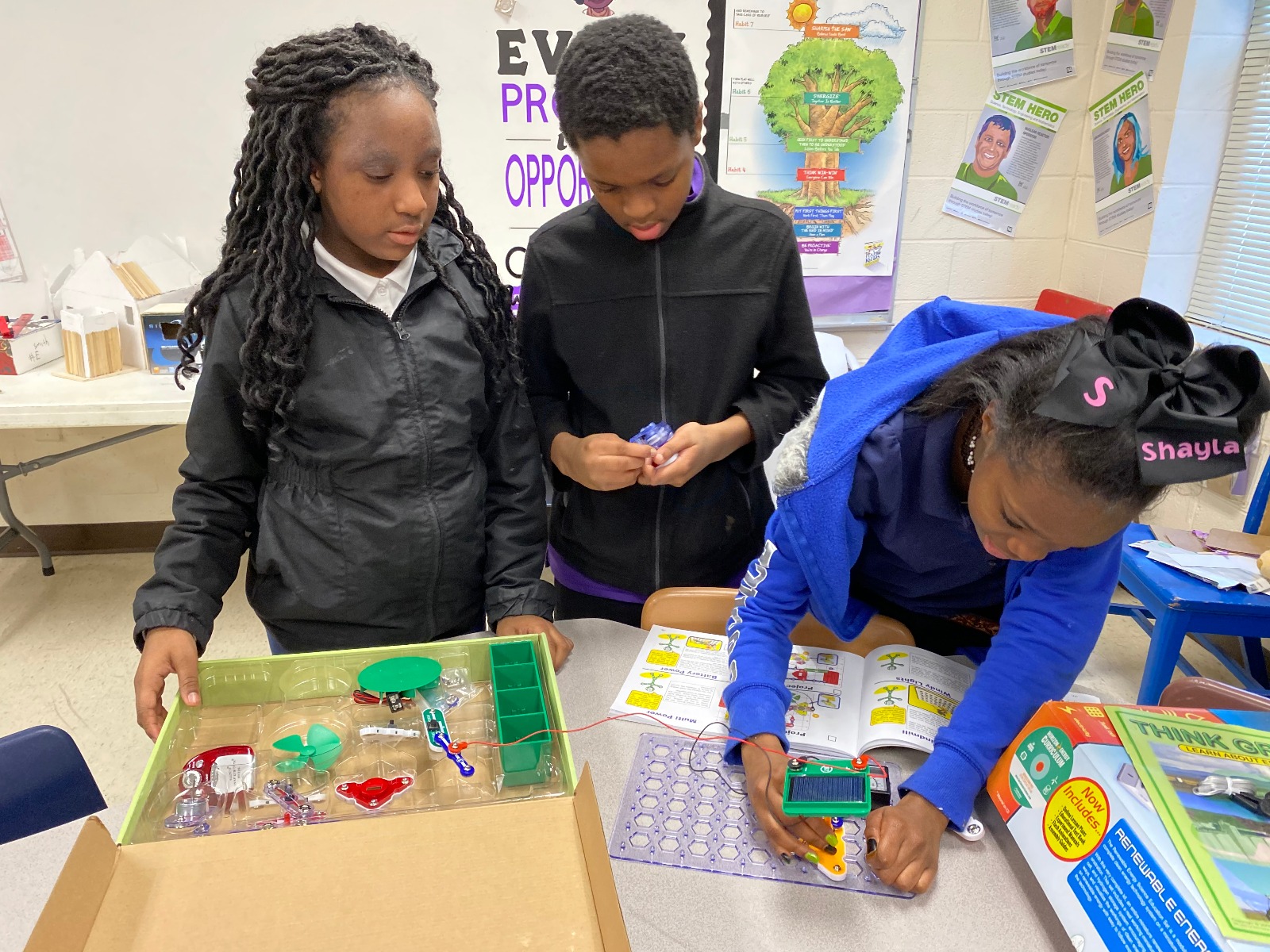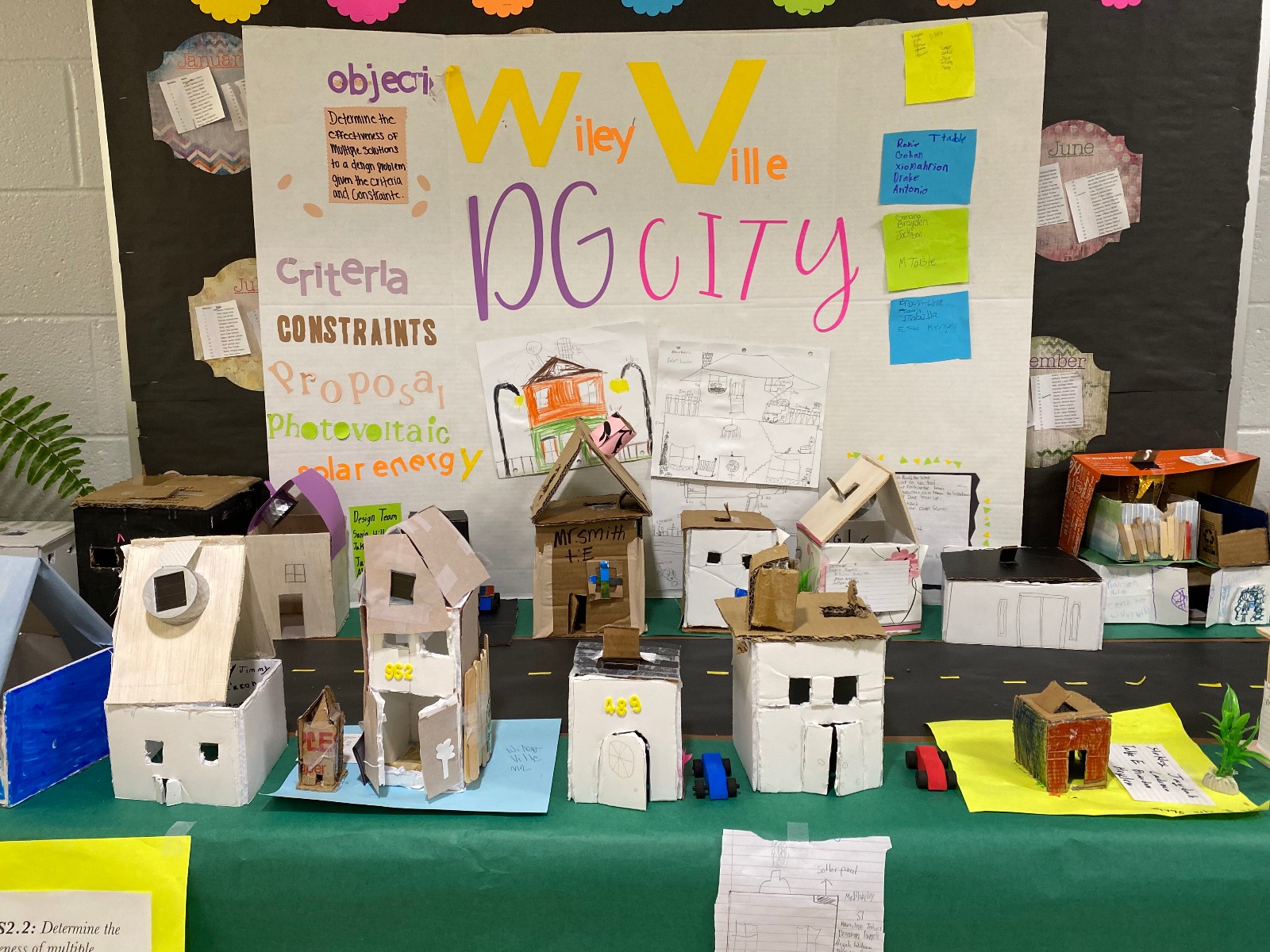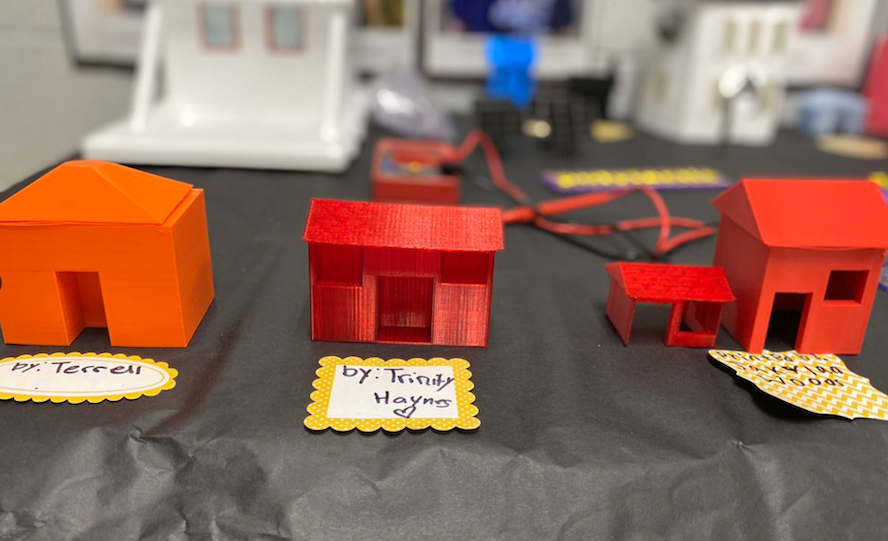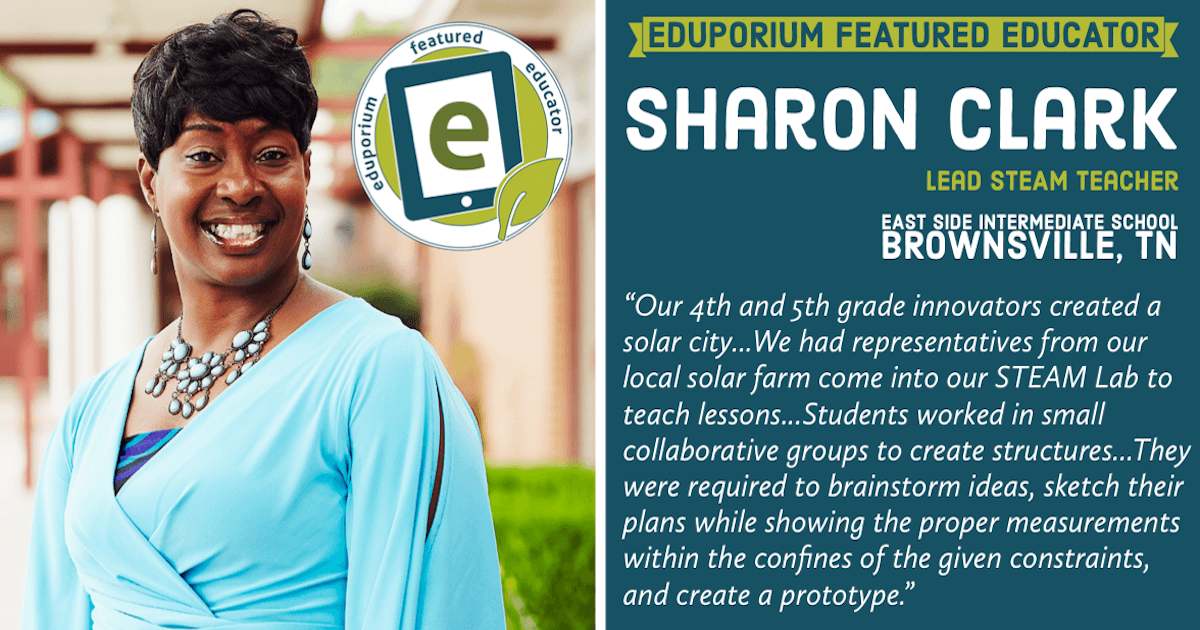We’ve shared the innovative efforts of teachers who love technology and STEAM education over the past couple of years. Now, we’re excited to say that we’re ramping up our Eduporium Featured Educator series to share more accomplishments from classroom teachers, librarians, makerspace leaders, and others with more frequency! For this post, we’re excited to introduce our community to Sharon Clark, whose made great use of technology in her instruction as a middle school STEAM educator, using it to help teach both real-world and soft skills.
Sharon Clark
Lead STEAM Teacher, East Side Intermediate School, Brownsville, TN
Q&A:
Please share any innovative EdTech project(s) you've completed with your student or plan to complete.
Our fourth and fifth grade innovators created a solar city, which they displayed during National Engineering Week 2020. I had the opportunity to partake in the Tennessee STEM Innovative Network's Manufacturing and Engineering Externship Program this past summer. A requirement of the program was that I build a curriculum around something I learned from other educators during the externship, so I chose solar energy. We had representatives from our local solar farm come into our STEAM lab to teach lessons on solar energy.
Students used items we received from Eduporium to further engage in hands-on learning about solar energy and renewable energy. While learning about solar energy and the engineering design process, students worked in small, collaborative groups to create structures that would be contributed to the solar city. They had to brainstorm ideas, sketch their plans while showing proper measurements within the confines of constraints, and create prototypes. Each class (18 in all) had a team for designing a display board for their "community" within the solar city.

Students became creative by naming their communities in other educators' classes things like "Ceciliaville" for Ms. Cecilia's class, "Griff City" for Ms. Griffith's class, and "Hill Town" for Ms. Hill's class. During National Engineering Week, we invited parents and the community in as students explained their learning to stakeholders. Someone from our newspaper saw our project on Facebook and came to capture our story for "The Brownsville Press." They also shared a different article on our district's website.
What is a challenge you face with your EdTech use? What resources did you use or are in need of?
A challenge that I faced was getting enough materials and supplies for the project. I used a number of items from Eduporium, including Snap Circuits kits, the Horizon Renewable Science Kit, and a Thames and Kosmos Kit that I purchased with our $500 grant award. I also used solar panels with funds that we received from our local Simmons Bank. And, we had another community donor (The Foundation) help us by purchasing glue guns, glue sticks, foam board, tri-fold boards, and other supplies that were needed for this project to be a success.
Another challenge I continue to face (which became so much more evident when COVID-19 shut schools down) is having enough electronic devices in the STEAM lab s that every student in a class can work on their own device, even if working online in a collaborative group. This would allow for online journaling and communication they can share with everyone (even across classes and grades). When students are writing in their paper journals, not everyone can read the ideas they want to share. When working online, however, they can share ideas in a portfolio that travels with students from grade to grade.
While we were working on our project, my afterschool students would want to extend the work they did during the day, however, without their team members, they didn't always know what to do. If we could communicate online with workflow software like Trello, students would always know who did what and what's left. Then, even after the project was complete, we could still continue the conversation. Now, people are asking for my curriculum in an online format and I'm having to restructure, whereas that wouldn't be necessary with this technology.

As a STEM educator, what are some of the real-world skills you've seen your students develop through regular EdTech use?
Students have gained a better understanding of renewable energy, which can lead them to be better citizens of Earth's sustainability. They are also aware of various jobs that are available and align with the skills they’ve learned, such as architects (an actual architect company donated an original blueprint to the class), construction workers, photovoltaic panel installers, 3D printing manufacturers for manufactured homes, and more!
They also learned soft skills that will serve them well throughout life if they continue to practice them. Those included critical thinking, collaboration, creativity, and problem solving. They learned time-management skills and meeting deadlines as well (that was a tough one). They also learned to be resourceful. Materials were limited and students had to only take what they needed without using excessive amounts of anything. They had to learn where to cut on a piece of material in a way that they could use it again (like cutting a large piece from a corner rather than cutting in the middle of a board, thereby destroying the entire board).

What interests you most about Eduporium's educator resources?
I absolutely love Eduporium! You all have wonderful products and great customer service! Plus, there are so many opportunities to win free stuff! I'm in a Title I school and always looking to fund my STEAM lab and three others in my district. I also like that there is not a long wait time to get items we order from Eduporium. Your guidance on building a makerspace is one of my "go-to’s!"
We thank Sharon for speaking with us as the first teacher highlighted in our new Eduporium Featured Educator Series. If you want to be featured, fill out the application form or pass it along to anybody in your district! Follow us on Twitter and Instagram and like us on Facebook to take advantage of how we help educators.



